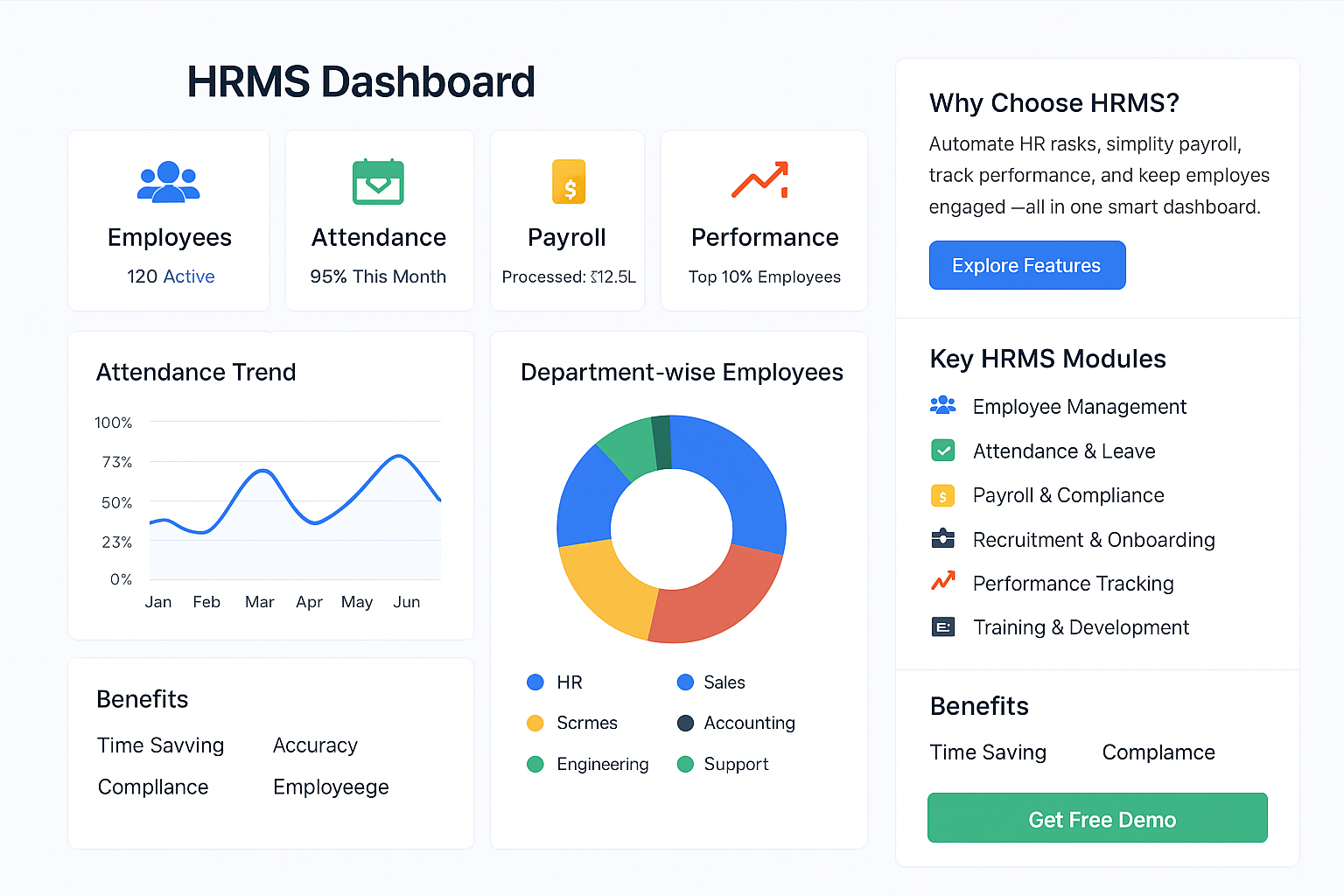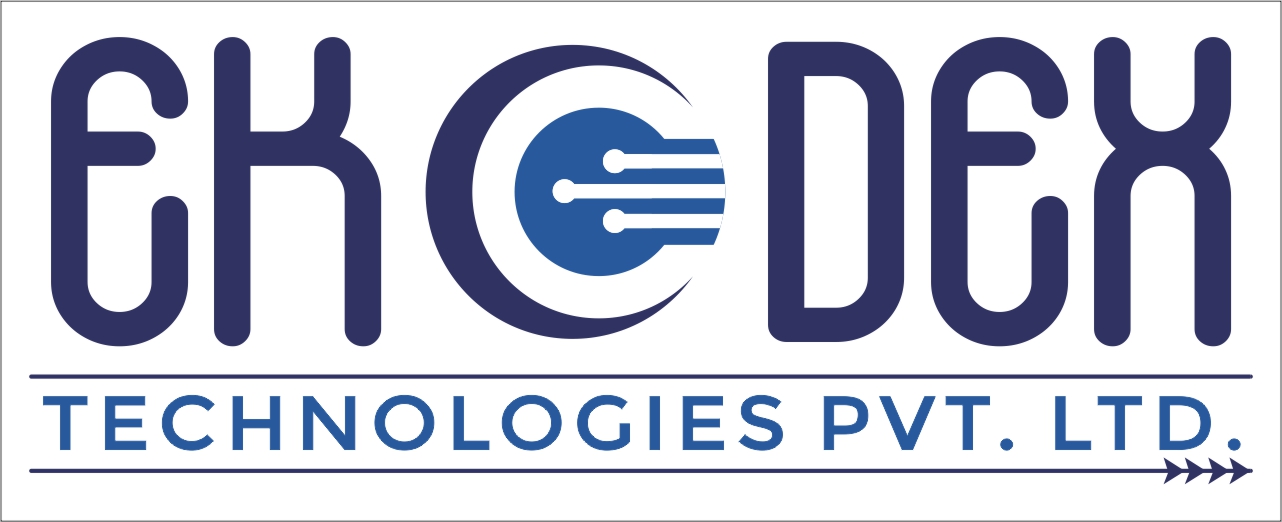What is HRMS?
HRMS (Human Resource Management System) is a comprehensive software that automates and streamlines HR processes such as recruitment, payroll, attendance, performance, and employee engagement. It helps organizations save time, reduce paperwork, and improve decision-making with real-time insights.
Why is HRMS Important?
An effective HRMS ensures smooth workforce management and empowers HR teams to focus on employee development rather than repetitive tasks. With centralized data, organizations can improve productivity, compliance, and overall employee satisfaction.
Key Features of an HRMS
- Employee Database Management – A centralized place to store and access all employee details.
- Recruitment & Onboarding – Manage job postings, applicant tracking, and digital onboarding.
- Attendance & Leave Management – Track attendance, leave requests, and shift scheduling.
- Payroll & Compliance – Automate salary calculations, tax deductions, and statutory compliance.
- Performance Management – Goal setting, KPI tracking, and appraisal workflows.
- Training & Development – Manage learning programs, certifications, and skill-building activities.
- Employee Self-Service Portal – Employees can update information, apply leave, and download payslips.
- Analytics & Reporting – Get insights with customizable reports and dashboards.
- Mobile Access – Anytime, anywhere access for HR and employees via mobile apps.
Benefits of HRMS
Implementing HRMS helps businesses to:
- Reduce manual errors and paperwork
- Increase efficiency and accuracy in HR processes
- Ensure compliance with labor laws and regulations
- Enhance employee satisfaction and engagement
- Improve decision-making with real-time data

"A good HRMS doesn’t just manage data, it empowers people and transforms the workplace."
Conclusion
In today’s fast-paced business environment, an HRMS is no longer a luxury but a necessity. It enables organizations to automate repetitive HR tasks, focus on strategic growth, and create a more engaged workforce.

